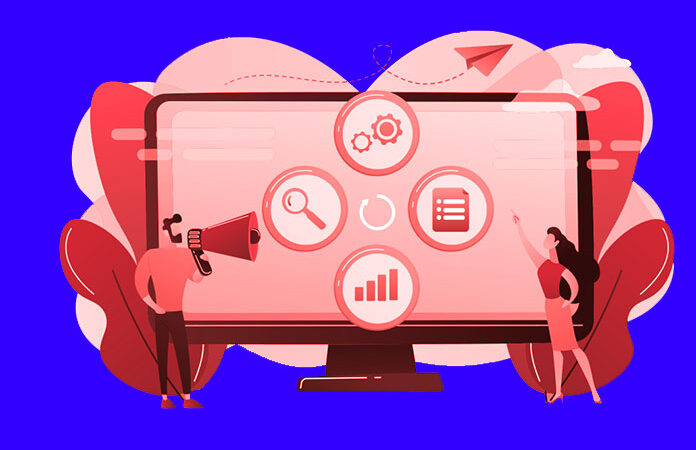Ten Innovative Business Ideas with Artificial Intelligence for 2024

2024 is emerging as a turning point in integrating Artificial Intelligence (AI) into the global business fabric. As we approach this date, AI ceases to be a mere technological tool and becomes the core of numerous enterprises and corporate transformations. In this constantly evolving environment, visionary companies and entrepreneurs always seek fresh and cutting-edge ideas that can make a difference.
The projection towards 2024 tells us about a world where AI optimizes and redefines how business is done, how we interact with technology, and how it influences our daily lives. This article will explore ten business ideas poised to lead the next wave of AI-based innovations in 2024 and beyond.
Table of Contents
1. Custom Chatbots for Businesses
In the age of digitalization, customer service remains a priority. AI-powered chatbots can go beyond simple pre-programmed responses, adapting to individual user needs and providing real-time solutions.
Examples:
- Health: A chatbot that helps patients identify symptoms and recommends immediate actions.
- Finance: Virtual assistants that offer investment and savings advice based on spending patterns.
- Education: Chatbots that guide students through syllabi and answer questions about the subject.
- E-commerce: Assistants that suggest products based on purchase histories and preferences.
- Tourism: Chatbots that recommend destinations, book flights, and hotels, and suggest itineraries.
2. Hosting Optimization with AI
Web hosting is essential for any online business. With AI, it is possible to predict and adapt to traffic demands, ensuring optimal site performance.
Examples:
- Traffic prediction: Adaptation of resources in real-time during essential events or product launches.
- Security: Proactive identification and prevention of DDoS attacks.
- Content hosting: Optimization of content delivery based on user geolocation.
- Smart Backup: Scheduled backups during low-traffic times.
- Updates: Deploying updates during off-peak times of the site.
3. Predictive Web Design
Website design is no longer just about aesthetics. With AI, it is possible to create adaptive interfaces that respond to user behaviour.
Examples:
- Adaptive design: Changes to the interface based on the user’s preferences and previous actions.
- Content Suggestions: Presenting relevant articles or products based on previous interests.
- Image optimization: Automatic image size and format adaptation according to the user’s device.
- Automatic A/B Tests: Implementation and analysis of different designs to optimize the user experience.
- Real-time feedback: Surveys and forms are presented based on the user’s interaction with the site.
Also Read: How Artificial Intelligence is Affecting Cyber Security
4. Sentiment Analyzer for Reviews
Customer feedback is gold for any company. However, understanding this feedback can be a challenge. AI can decode the sentiment and trends behind words.
Examples:
- Product analysis: Understanding which features of a product are most appreciated or criticized by customers.
- Service optimization: Identify areas of improvement in services based on user comments.
- Campaign Development: Create marketing campaigns based on positive sentiments and popularity areas.
- Customer Service: Proactively detect and address recurring issues or concerns.
- Brand evolution: Monitor how brand perception changes over time and across different platforms.
5. Predictive Online Advertising
Online advertising has seen drastic changes with the introduction of AI. It is about more than just reaching the right audience; it is about predicting and responding to their needs.
Examples:
- Advanced Targeting: Target ads based on the user’s previous behavior, recent searches, and social media interactions.
- Real-time optimization: Automatically adjust ad campaigns based on live performance.
- ROI Analysis: Get detailed reports on which ads give the best returns and why.
- Assisted Creative: Automatically generate ad variations based on what is performing best.
- Contextual Advertising: Insert relevant ads into video content or articles based on context and user behaviour.
6. Smart Domain Recommender
The right domain name can make or break an online business. AI can make choosing less of a gamble and more of an informed decision.
Examples:
- Market Trends: Suggest names based on trending keywords in real-time.
- Competition Analysis: Analyze what domain names competitors use and offer alternatives.
- Creative Combinations: Generate combinations of relevant keywords that are not already registered.
- Availability Check: In real-time, check the availability of a domain as you think.
- Brand Protection: Suggest similar domains or common variants to protect brand identity.
7. Predictive Analysis for E-commerce
E-commerce is a sector that benefits significantly from AI capabilities, especially when understanding and forecasting purchasing trends.
Examples:
- Inventory Management: Anticipate which products will be popular and adjust inventory accordingly.
- Personalized recommendations: Suggest products based on previous purchases, searches, and browsing behavior.
- Fraud Detection: Identify and prevent fraudulent transactions in real-time.
- Price Optimization: Adjust prices based on demand, competition, and market trends.
- Cart abandonment analysis: Understand the reasons behind abandoned carts and offer solutions, such as discounts or reminders.
8. Automation of Administrative Tasks
Repetitive and administrative tasks can consume a significant amount of time. AI can handle these tasks, freeing up time and resources.
Examples:
- Accounting: Automate data entry, reconciliation, and financial reporting.
- Email Management: Filter emails, highlight the most important ones, and offer automatic responses based on the content of the email.
- Scheduling: Automatically set up meetings and calls based on participant availability.
- Document Management: Classify, archive, and retrieve documents based on their content and context.
- Customer Service: Automate responses to frequently asked questions, freeing up staff for more complex queries.
9. Web Security Powered by AI
Online security is a significant concern in the digital age, with threats constantly evolving. Artificial intelligence can offer robust and proactive solutions to keep cybercriminals at bay.
Examples:
- Anomaly Detection: Monitor traffic and behaviors in real time to identify unusual patterns that may indicate an attack.
- Biometric authentication: Use facial, voice, or fingerprint recognition to ensure only authorized users have access.
- Automated responses: If a threat is detected, AI can immediately act, such as disconnecting a server or blocking an IP.
- Security training: Implement employee training programs based on the latest threats detected, keeping staff informed.
- Code analysis: Automatically scan code for potential vulnerabilities before deployment.
10. Freelance Content Creator
As content continues to be a crucial tool for marketing and engagement, AI offers tools for its creation and optimization, reducing the burden on human teams and enabling a constant and relevant flow.
Examples:
- Blogs and articles: Generate articles on relevant topics based on current trends and audience preferences.
- SEO Optimization: Automatically adjust content to include relevant keywords and improve search engine rankings.
- Social Media Posts: Create and schedule posts based on audience activity and preferences.
- Graphic design: Generate basic graphics and designs to complement written content.
- Videos and animations: Create essential videos or animations to complement the content and improve engagement.
Specialization in AI for Various Spaces
Artificial intelligence is not a monolithic field; it has diverse specializations and focus areas that address different problems and sectors of the business and everyday world. As people dive deeper into the universe of AI, the need for specialized courses and classes becomes imperative.
Innovative startups are emerging to address this demand, offering targeted educational solutions. For the first time, it is not uncommon to find courses that focus exclusively on how AI can revolutionize, for example, the design of a website or the management of bright urban spaces.
From Concept to Reality: Turning an Idea into a Business
Having an idea is just the beginning. Transforming that idea into a viable business idea requires a mix of creativity, determination, and often a little luck. However, with the right tools and propositions, it is possible to turn an abstract concept into a thriving business.
Many people have started their ventures from the comfort of their homes, using online resources and digital platforms to bring their ideas to life. In the field of AI, with its technical and constantly evolving nature, having solid training and specialization can make the difference between success and failure.
Conclusion
The possibilities with artificial intelligence are almost endless. Every year, new opportunities and application areas emerge that can transform how we do business and live our daily lives. As we move towards 2024, entrepreneurs, companies, and technology enthusiasts must stay on top of these innovative business ideas and consider how AI can be integrated into their operations or be the core of a new venture.
Also Read: What is Artificial Intelligence, and what are its key components






